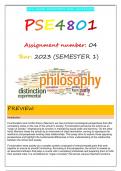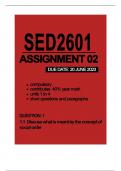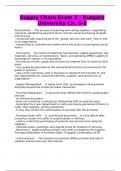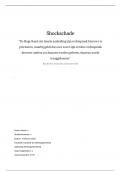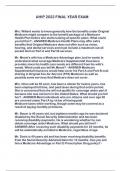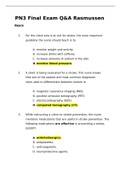Autre
PSE4801 ASSIGNMENT 4 2023
- Cours
- Établissement
The document explores two contrasting perspectives on the role of the school in society: functionalism and Marxism. According to functionalism, the school is seen as an organ of society, contributing to social order and cohesion by providing education and socialization. On the other hand, Marxism v...
[Montrer plus]
